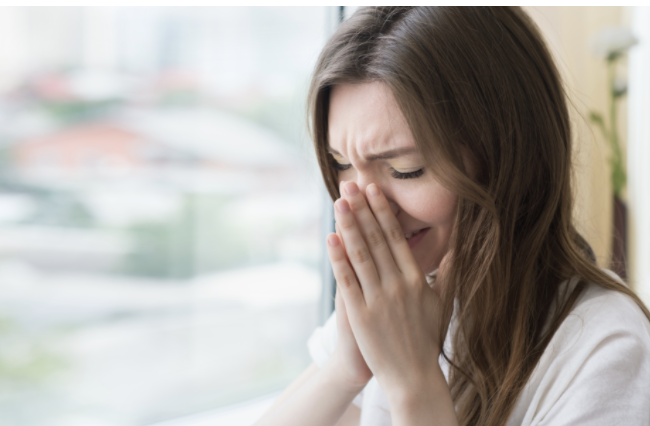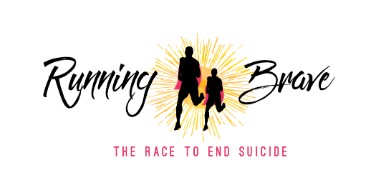Alternative approaches to mental health care rely on more than just therapy sessions and medication to solve the problem. They include an emphasis on the interrelationship between mind, body, and spirit. Although alternative practices have a long history, they also remain a controversial alternative or additive to traditional Western mental health care. Here are a few examples of some alternative mental health care methods and how they might help various people cope with mental health disorders.
Self-Help Groups
Finding and interacting with individuals who have gone through similar experiences to yours is an invaluable tool. Self-help groups for various mental illnesses are invaluable for recovery and self-empowerment. Instead of relying on a person who may or may not have experienced something similar to you, a self-help group is full of individuals who can fully empathize with what you are going through. These groups or meetings involve some of the following:
- People who have similar needs
- Facilitation by a survivor or other layperson
- Assistance with life-disrupting events, such as death, serious accidents, abuse, addiction, or diagnosis of a mental, physical, or emotional disability
- Operation on an informal, free-of-charge, and nonprofit basis
- Voluntary, anonymous, and confidential
- Provide support and education
Diet and Nutrition
While diet and nutrition can’t solve a hormonal imbalance, they can certainly make symptoms better. Adjusting what you eat can help some people with mental illnesses. For example, some studies show eliminating milk and wheat products can reduce the severity of symptoms for those who have schizophrenia or some children who have autism. Likewise, some physicians use various holistic substances to treat anxiety, depression, autism, drug-induced psychoses, and hyperactivity; for example, some doctors use herbal treatments, riboflavin, magnesium, B-complex vitamins, and thiamine in treatments.
Religious Counseling
Some people find it infinitely more soothing to speak with their religious leaders rather than a therapist, who isn’t associated with any particular religious community. Religious leaders sometimes have training in counseling, but for those who find praying helpful in relieving stress, therapy from their priest or pastor can have the additional advantage of coming from the same set of spiritual beliefs. Counselors working in traditional faith communities often find a need to incorporate psychotherapy and/ or medication along with prayer and spirituality to help someone effectively with mental disorders.
Animal Assisted Therapies
Many people have found working with an animal or animals under the guidance of a health care professional may benefit some people with mental illnesses by facilitating positive changes, such as acquiring better socialization skills and increased empathy. Animals can also be used as part of group therapy programs to encourage communication and improve people’s ability to focus. Individual animal therapy has also helped in developing self-esteem and reducing loneliness and anxiety.
Expressive Therapy
Expressive therapy includes expressing oneself through art as a means of communication and dealing with stress. For example, art therapy uses drawing, painting, and sculpting to help people resolve inner conflicts, release deeply repressed emotions, develop self-awareness, and foster personal growth. Some mental health professionals use art therapy as a diagnostic tool and as a way to help treat disorders such as depression, schizophrenia, and abuse-related trauma.
Other treatments include dance/ movement therapy and music/ sound therapy. Dance/ movement therapy allows people recovering from physical, sexual, or emotional abuse regain a sense of ease with their own bodies. Music therapy helps improve blood flow, blood pressure, breathing, pulse rate, and posture. Research shows music stimulates the body’s opiates and endorphins, providing a natural “feel good” response to listening to it. Music/ sound therapy has been used to treat stress, grief, depression, autism in children, schizophrenia, and other mental health issues. It has also been used to diagnose mental health needs.
Culturally Based Healing Arts
Many non-Western cultures have healing practices many health professional use in conjunction with traditional Western medicine. For example, acupuncture, shiatsu, reiki, Ayurveda, yoga, sweat lodges, and talking circles all apply beliefs from non-Western cultures that emphasize the following:
- Wellness is a balancing of the physical, spiritual, and mental/ emotional selves
- Illnesses are caused by imbalances in the body
- This imbalance can be corrected by herbal/ natural remedies, nutrition and exercise, and meditation and/or prayer
Acupuncture
Acupuncture can be used to help those who suffer from addiction by way of detoxification, to alleviate anxiety and stress, to treat ADHD in children, and to treat the negative side effects of depression. It is also used to help those suffering from physical ailment, such as chronic back pain. Some insurance companies even cover the cost of several acupuncture treatments to treat various illnesses and conditions.
Ayurveda
Ayurvedic medicine incorporates an individualized regimen to treat a variety of different conditions. For example, providing people with a healthy diet, meditation, herbal preparations, or other techniques has helped treat depression, facilitate lifestyle changes, and release stress and tension through meditation or yoga.
Native American Traditional Practices
Part of Indian Health Service programs to treat depression, stress, trauma, and substance abuse includes ceremonial dances, cleansing rituals, and chants.
Yoga/ Meditation
Yoga and meditation can help people breathe more easily, improve posture, increase flexibility, and decrease stress. Some mental health providers encourage people to take up yoga or meditation in combination with other treatments to combat depression, anxiety, and stress-related disorders.
Cuentos
Cuentos originated in Puerto Rico. Based on folktales, therapists use stories containing healing themes and models of behavior, such as self-transformation and endurance through adversity. This therapy is used primarily to help Hispanic children recover from depression and other mental health issues related to leaving one’s home and living in a foreign culture.
Relaxation and Stress-Reduction Techniques
Using various relaxation and stress-reduction techniques have helped many people manage their mental health disorders. For example, the following have been used successfully to treat such mental health issues as stress, depression, panic disorders, phobias, and addiction:
- Biofeedback
- Guided imagery/ visualization
- Telemedicine
- Massage therapy
- Phone counseling
- Electronic communications
- Radio psychiatry
Technology, in particular, has made it much easier for people to seek help anonymously and without the added stress of leaving the house. For people in more rural areas, technology has also allowed them to seek counseling when none was previously available in their city or town. It has also contributed to online consumer groups exchanging information, views on mental health, experiences, alternative medicine, treatment systems, and so on, helping them seek alternative treatment methods they had never before considered.
If you or a loved one have a mental health issue, consider talking to one of our Chico mental health professionals about it. Therapeutic Solutions has more than 20 years of combined experience in helping people with behavioral health issues, such as anxiety and depression. We believe in a multi-disciplinary approach because we believe it is the most effective way to provide quality care. Let us talk to you about the various programs we offer in an appointment.
Contact us at (530) 899-3150 or fill out our online form to request an appointment. If you’d like to refer someone, you can also visit our page to refer a patient today. We look forward to speaking with you!







 Running Brave is an effort to raise awareness about suicide and promote initiatives to prevent it. The event originated in Redding but is making its way to Chico at the end of March for the first time. Hundreds of community members will be in attendance as runners, walkers, volunteers, resources, and event supporters, to show their support and raise funds for the local chapter of the American Foundation for Suicide Prevention. This event will be held on Saturday, March 31st from 8:00 am to 12:00 pm, and includes many ways to support the cause:
Running Brave is an effort to raise awareness about suicide and promote initiatives to prevent it. The event originated in Redding but is making its way to Chico at the end of March for the first time. Hundreds of community members will be in attendance as runners, walkers, volunteers, resources, and event supporters, to show their support and raise funds for the local chapter of the American Foundation for Suicide Prevention. This event will be held on Saturday, March 31st from 8:00 am to 12:00 pm, and includes many ways to support the cause:


